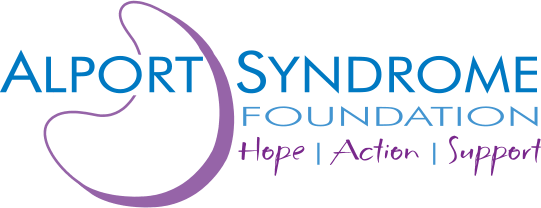Over $2 Million Invested
Established in 2010, our Research Program has invested more than two million dollars in research projects around the world including the United States, Canada, Europe, Japan and Australia. The largest part of our annual budget is directed to research.
Collectively, ASF’s Research Program is adding to our understanding of possible pathways for treatments or a cure, shining a light on awareness of Alport syndrome in the research community, attracting innovative minds to study this rare disease, and shifting the landscape to an active and engaged research community.
Scroll to the bottom of this page for 2022 updates.
Learn about ASF’s Research Program and previously funded research projects.
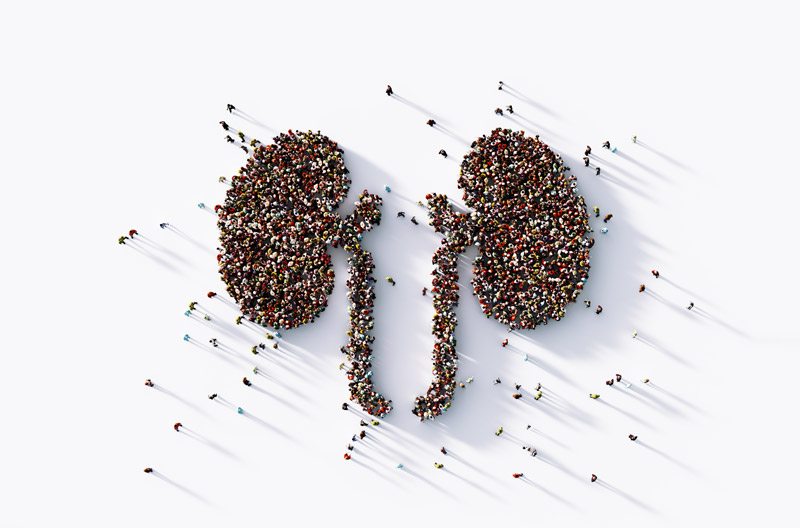

International Research Network
We are proud to note that our Research Program has helped build a network of international researchers that have come to know each other and to work collaboratively. The work and activity of the Research Program has brought researchers and patients together in person, proving to be remarkably empowering for both.
It is a hopeful and productive time for Alport syndrome research. There are therapies being developed now that promise to improve the treatment of Alport kidney disease and further postpone the need for dialysis and kidney transplantation. It is our belief that ultimately, with continued efforts, a cure is possible.
Research Program Impact Updates
December 2022:
Last month, the GOFARR Laboratory for Organ Regenerative Research and Cell Therapeutics in Urology at Children’s Hospital Los Angeles received two grants from the National Institutes of Health (NIH).
Laura Perin, PhD (ASF Scientific Advisory Research Network and 2011 ASF Research Program funding recipient), and Stefano Da Sacco, PhD, are Co-Principal Investigators on a five-year $3.2M Alport syndrome-focused grant. They are studying the use of micro-RNA therapy in an Alport mouse model to preserve podocytes, specialized renal cells, which allow the kidney to properly process wastes.
Dr. Perin is also the Principal Investigator on a secondary two-year $2M grant shared with her GOFARR collaborators. This grant supports work on an innovative “kidney-on a-chip” platform which mimics the function and the biology of kidney cells. New drugs can be tested on the chip for their effectiveness and/or toxicities in a human setting since it utilizes human kidney cells. The chip will also allow the study of molecular mechanisms that regulate Alport syndrome, as well as potential new targets that can be modulated to restore kidney function.
“Alport patients are the major contributors of our research,” says Dr. Perin. “We are very grateful to all the moms that donated their amniotic fluid to advance our research. Thanks to their amniotic fluid donation we can obtain Alport renal cells, a fundamental component of our chip system.” You can learn more about Dr. Perin’s research efforts by watching our closed-captioned Researcher Spotlight video embedded to the right of this paragraph.
August 2022:
Click here to view an August update on ASF’s Research Program and its impact.
March 2022:
Dr. Ron Korstanje, a member of ASF’s Scientific Advisory Research Network, leads a research team at The Jackson Laboratory recently awarded a $1.49M grant from the National Institute of Diabetes and Digestive and Kidney Disease to study Alport syndrome genetics. The project focuses on identifying modifier genes affecting the severity of disease and age of onset. This grant allows Dr. Korstanje (pictured at left) to expand the work he began with an initial 2019 ASF award of $125,000.
The project, which will study both mouse and human models, is a collaboration with Dr. Laith Al-Rabadi (pictured at right). Dr. Al-Rabadi, a clinician and researcher at the University of Utah who also serves on ASF’s Medical Advisory Committee, will test in human patients for the candidate genes that Dr. Kostanje and his team identify in the mouse models.
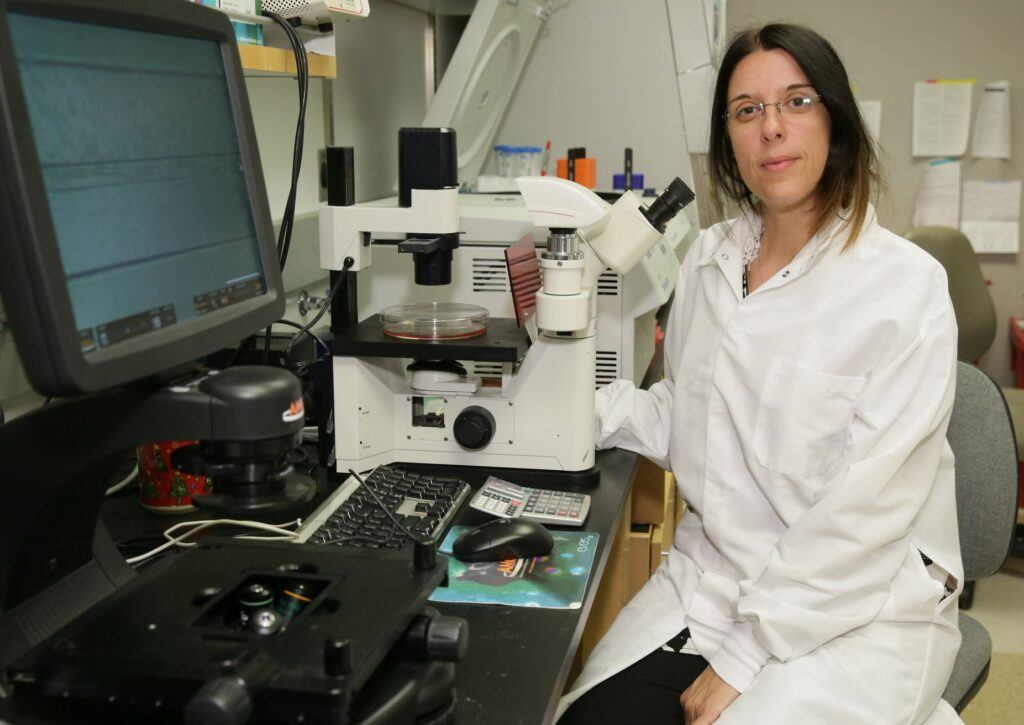
Laura Perin, PhD.
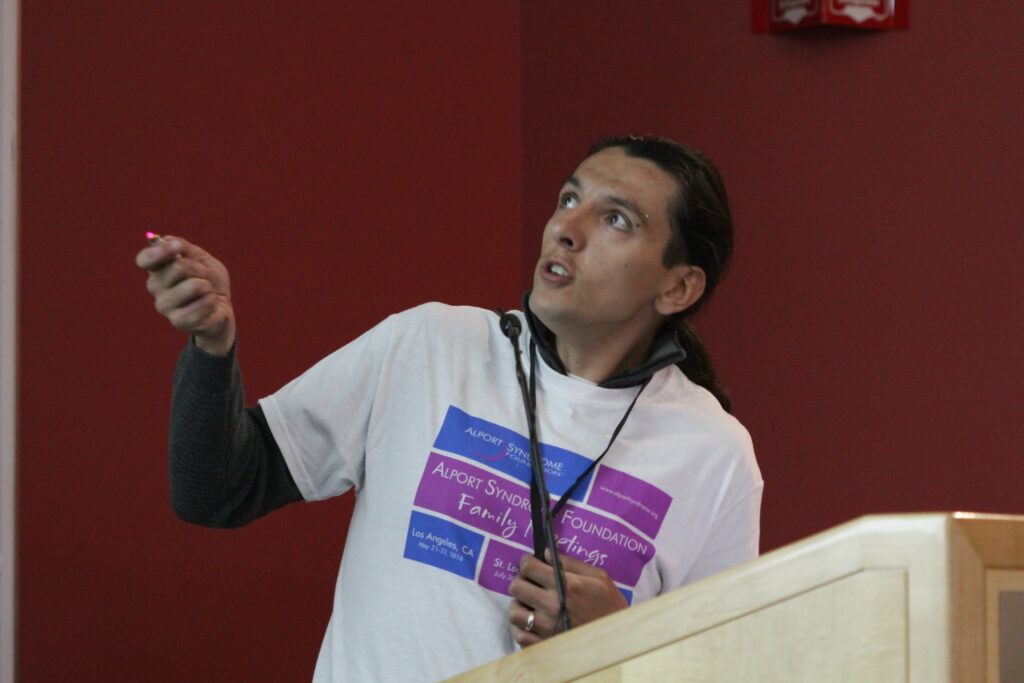
Stefano Da Sacco, PhD.
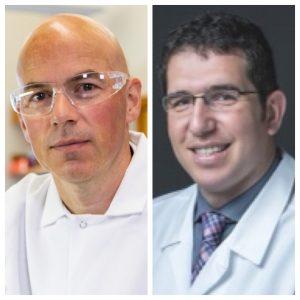
Drs. Korstanje and Al-Rabadi
